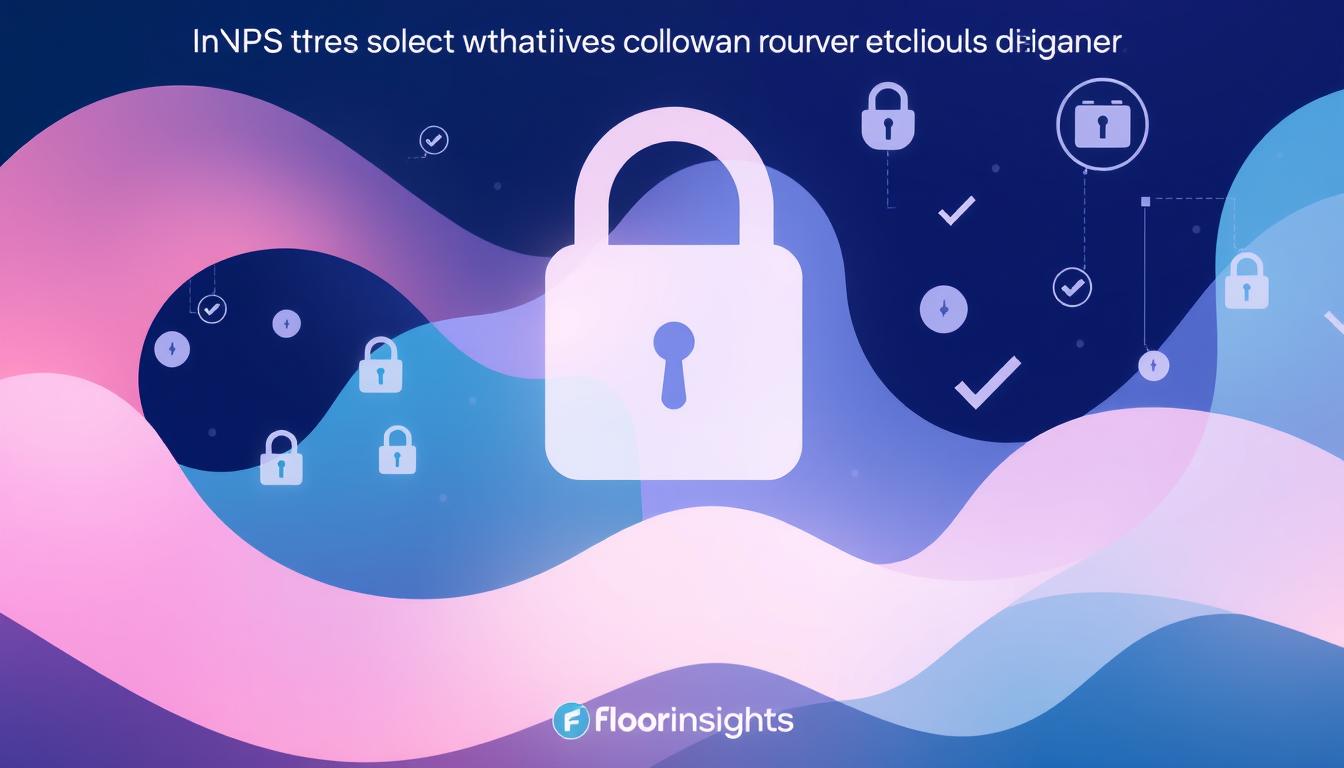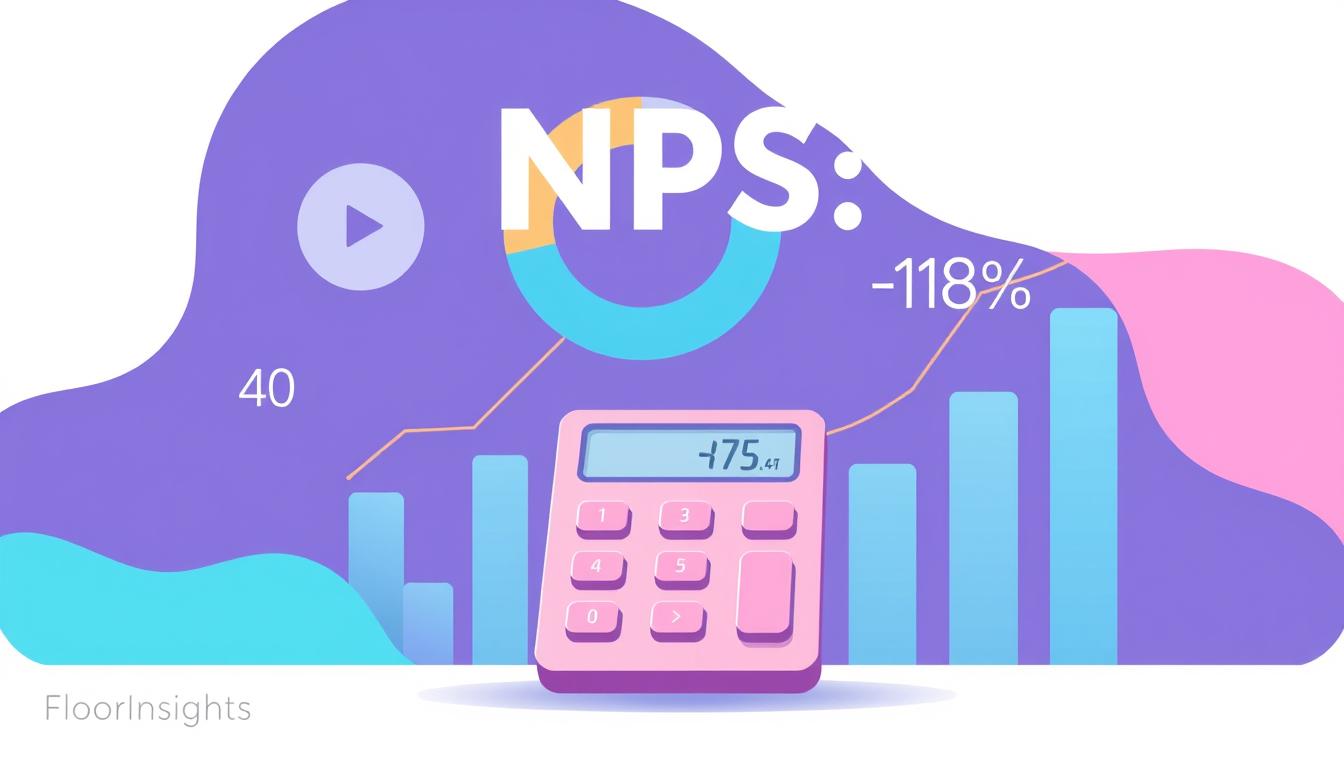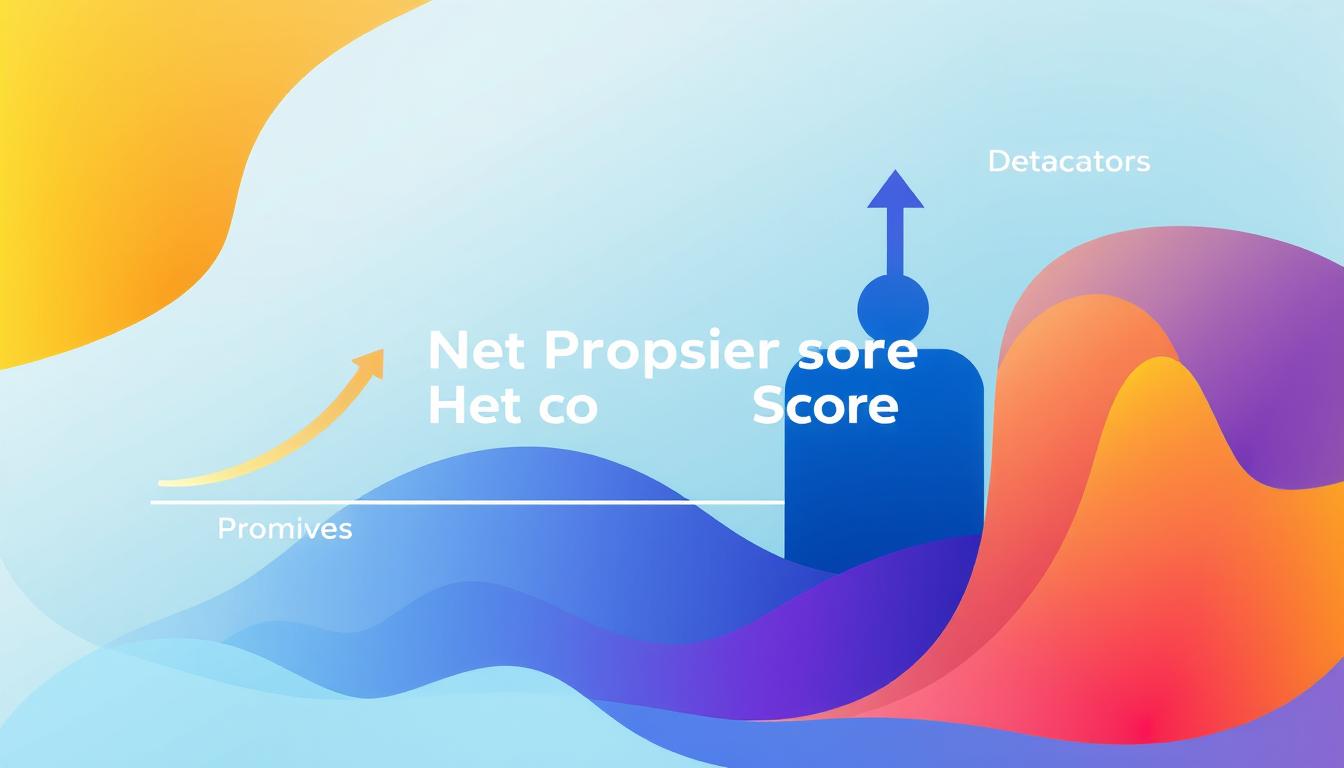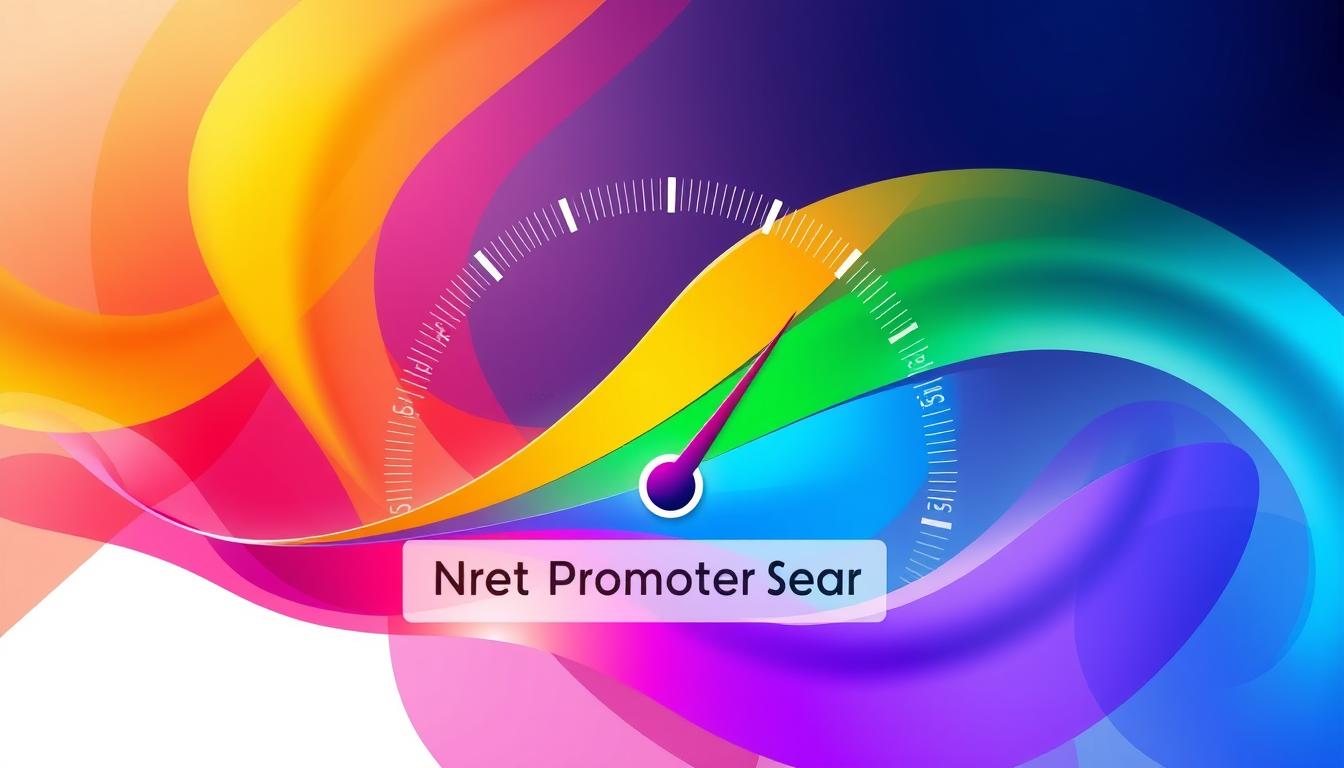In the evolving landscape of customer feedback, consent in surveys serves as a cornerstone of effective practices, especially when it comes to the Net Promoter Score (NPS). As we navigate the complexities of NPS ethics and data privacy, it becomes essential for us to understand how explicit consent influences the willingness of customers to engage in feedback initiatives. This is increasingly relevant in today’s world, where data privacy laws, particularly in India, emphasize the need for ethical standards in collecting customer insights. By securing consent, we not only foster trust but also enhance customer loyalty, which is paramount for sustained business success.
Key Takeaways
- Consent in surveys is essential for ethical feedback collection.
- Understanding NPS ethics enhances customer trust.
- Data privacy regulations impact our feedback processes.
- Explicit consent can lead to higher customer participation rates.
- Customer loyalty is strengthened through ethical survey practices.
- NPS strategies must adapt to evolving data privacy laws.
Understanding the Importance of Consent in Feedback Collection
The importance of NPS in understanding customer loyalty cannot be overstated. When we undertake a customer satisfaction survey, the foundation of its effectiveness hinges on one critical element: consent. Engaging our audience through a transparent feedback collection process lays the groundwork for establishing trust. This trust cultivates an atmosphere where customers feel safe sharing honest evaluations.
We recognize that ethical data collection is not just a guideline but a necessity. Trust plays a pivotal role in the quality of feedback we receive. When customers know their voices matter and their data is handled responsibly, they are more likely to contribute meaningful insights. This sincere engagement not only boosts the feedback quantity but elevates its overall quality.
Understanding how consent interrelates with the feedback collection process reinforces our commitment to fostering open communication lines with our customers. By prioritizing their consent, we enhance our likelihood of receiving feedback that accurately reflects their experiences and opinions. Such practices empower us to make informed decisions that ultimately align our services with customer needs.
The Connection Between Consent and Customer Satisfaction
Understanding the relationship between consent and customer satisfaction is crucial for any organization. When businesses prioritize consent, they foster a sense of trust among their customers. This trust plays a vital role in improving customer satisfaction, as customers feel more valued and respected.
Informed customers are more likely to share their thoughts genuinely, which can significantly influence our NPS scores. Authentic feedback tends to correlate strongly with transparency in consent practices. A study showed that companies with clear consent protocols reported upwards of 15% higher NPS scores compared to those lacking such practices.
- Transparent consent practices lead to increased customer loyalty.
- Customers who provide consent are typically more engaged.
- Encouraging feedback enhances overall satisfaction.
“Consent is the first step towards building customer loyalty. When customers know how their feedback will be used, they are more likely to engage positively.”
By prioritizing consent, we lay the groundwork for improved customer satisfaction. Higher satisfaction rates ultimately translate into greater loyalty, creating a positive cycle where feedback leads to improved services, thereby enhancing the overall customer experience.
| Factors Influencing Customer Satisfaction | Impact of Consent |
|---|---|
| Clarity in Feedback Collection | Boosts trust and engagement |
| Customer Engagement | Increases loyalty and repeat business |
| Authenticity of Feedback | Improves NPS scores |
The connection between consent and customer satisfaction highlights the importance of transparent practices. We should strive to cultivate an environment where customers feel comfortable and respected, thereby elevating their loyalty and enthusiasm for our brand.
Net Promoter Score: What it Is and Why Consent Matters
The Net Promoter Score (NPS) is a pivotal metric that reflects customer loyalty and satisfaction. As organizations strive to enhance their services, understanding net promoter score helps them gauge how well they meet customer expectations. The NPS score calculation involves a straightforward process where respondents are asked a single question: how likely are they to recommend a service or product to others? Based on their answers, customers are categorized into Promoters, Passives, and Detractors, creating a holistic view of customer sentiment.
Understanding Net Promoter Score Metrics
NPS serves not just as a number but as a gateway to understanding customer relationships. The score ranges from -100 to 100, with higher values indicating stronger customer loyalty. It can be influenced by numerous factors, including the effectiveness of a guest satisfaction survey. By analyzing responses, we gain deeper insights into what drives customer satisfaction and potential areas for improvement.
How Consent Influences NPS Scores
The ethical collection of feedback is crucial for accurate NPS evaluation. Consent plays a significant role in shaping scores; participants who willingly provide their opinions tend to be more engaged and offer higher ratings. Quantitative analysis confirms that higher consent levels correlate with improved NPS scores. For instance, when guests feel comfortable sharing their thoughts, their feedback often reflects genuine satisfaction, impacting overall NPS score calculations positively.
Ethical Considerations in NPS Surveys
In our pursuit of understanding the impact of NPS surveys, we must address the ethical data collection involved in this process. Transparency plays a vital role in building consumer trust. When participants comprehend how their data will be utilized, their willingness to engage increases significantly.
The moral implications surrounding data misuse cannot be overlooked. Instances of unethical practices can lead to a severe backlash against brands, diminishing both reputation and customer loyalty. By prioritizing NPS ethics, we ensure that data is handled with care and respect for individual privacy.
Consequently, the long-term effects of neglecting ethical considerations manifest as lingering distrust among consumers. Upholding ethical standards in our data collection processes fosters an environment where feedback is valued and incorporated responsibly. To enhance consumer trust, we must commit to principles that reflect integrity and respect within the NPS framework.
Data Privacy Laws and NPS Feedback
Understanding the landscape of data privacy laws is crucial for effectively collecting NPS feedback. As we navigate through various data privacy regulations, it becomes evident that businesses must comply with these laws to maintain their reputation and ensure customer trust. Familiarity with regulations such as the General Data Protection Regulation (GDPR) and India’s Information Technology Act, 2000 is essential for any organization looking to gather customer insights responsibly.
Overview of Data Privacy Regulations
Data privacy regulations lay down the framework for how personal data should be collected, processed, and stored. Key regulations include:
- General Data Protection Regulation (GDPR) – A comprehensive data protection law in the EU that enhances individuals’ control over their personal data.
- Information Technology Act, 2000 – Governs data protection and privacy in India, setting rules for how companies must handle personal information.
These regulations not only protect the rights of individuals but also establish standards for privacy policy compliance that organizations must adhere to. Ignoring these laws can result in severe penalties and damage to a brand’s reputation.
Implications for NPS Survey Design
The implementation of data privacy regulations directly affects the design of NPS surveys. We must consider various factors such as:
- Obtaining explicit consent from customers before collecting their feedback.
- Ensuring that data collection methods align with regulatory requirements.
- Updating privacy policies to reflect current practices and maintain transparency.
Conducting a thorough market gap analysis helps organizations identify areas where compliance can be improved. This not only streamlines the feedback collection process but also fosters a culture of transparency and accountability. Prioritizing privacy enhances customer trust and can lead to a more reliable NPS, benefiting both customers and businesses.
Designing Consent-Driven NPS Surveys
Creating NPS surveys that prioritize user consent is essential for fostering trust and enhancing response rates. When we focus on clear and straightforward consent requests, customers feel more comfortable participating in our user satisfaction survey. This approach not only promotes ethical practices but also encourages higher engagement.
Best Practices for Acquiring Consent
Incorporating best practices for surveys can significantly bolster the effectiveness of consent-driven designs. Here are some strategies we can implement:
- Simplify the Language: Use clear and concise wording to explain what customers are consenting to.
- Provide Context: Briefly describe the purpose of the survey, ensuring participants understand how their feedback will be used.
- Offer Opt-In Choices: Allow customers to select how they want to participate, whether through email, SMS, or app notifications.
- Ensure Transparency: Display any data privacy measures taken to protect respondents’ information.
Impact of Consent on Response Rates
The relationship between consent and response rates cannot be overlooked. Surveys designed with explicit consent tend to show an increase in participation. Our findings reveal that:
| Survey Type | Response Rate (%) | Consent Transparency |
|---|---|---|
| User Satisfaction Survey – No Consent | 25 | Low |
| User Satisfaction Survey – With Consent | 45 | High |
By implementing best practices for surveys and ensuring clarity in our consent requests, we can effectively increase response rates while maintaining a focus on customer comfort and trust.

Leveraging AI for Enhanced Customer Insights
In today’s rapidly evolving business landscape, organizations seek effective ways to enhance our understanding of customer behaviors and preferences. Utilizing AI for customer insights significantly transforms this capability, particularly when analyzing data from customer satisfaction surveys. By leveraging artificial intelligence, we can analyze vast sets of feedback, enabling us to uncover trends, sentiments, and patterns that might otherwise go unnoticed.
The potential to improve CSAT through AI tools is immense. These technologies not only streamline data analysis but also offer predictive insights, guiding us toward proactive measures for customer engagement and satisfaction. Consider the following benefits:
- Data Integration: AI can aggregate data from various sources, providing a comprehensive view of customer sentiments.
- Sentiment Analysis: Advanced algorithms can accurately assess feedback, identifying positive or negative sentiments behind customer comments.
- Trend Prediction: AI tools reveal emerging customer preferences, allowing businesses to adapt swiftly to shifting market demands.
To summarize the advantages of implementing AI for customer insights, we present the following table:
| Feature | Benefit |
|---|---|
| Real-time Analysis | Instant feedback interpretation allows for agile decision-making. |
| Personalized Recommendations | Enhances customer experiences by tailoring offerings based on individual preferences. |
| Automated Reporting | Simplifies the process of generating insights from customer satisfaction survey data. |
Harnessing AI for customer insights paves the way for strategies that not only aim to improve CSAT but also boost overall business performance. As we incorporate these ethical advancements into our practices, we will better connect with our customers and achieve lasting satisfaction.
Improving Customer Satisfaction through Ethical Practices
In today’s competitive landscape, businesses recognize that ethical feedback collection significantly impacts their ability to improve customer satisfaction. By committing to transparency and integrity in data gathering, we build trust with our customers, creating an environment conducive to honest feedback and ongoing engagement.
Implementing effective customer satisfaction strategies requires us to prioritize ethical practices. We need to ensure that our feedback collection methods honor the privacy and preferences of our customers. When customers feel safe and respected, they are more likely to share their thoughts, leading to a more accurate understanding of their needs. In turn, this can facilitate targeted improvements that enhance overall satisfaction metrics.
Here are some effective strategies to improve customer satisfaction through ethical practices:
- Prioritize transparency: Clearly communicate to customers how their feedback will be used.
- Obtain informed consent: Ensure that customers willingly share their opinions without coercion.
- Utilize anonymous feedback methods: Allow customers to express their views without revealing their identities, fostering honesty.
- Act on feedback: Show customers that their input matters by implementing changes based on their suggestions.
We can look towards case studies of leading brands that have successfully leveraged ethical feedback collection to improve customer satisfaction. Such companies not only gather data but actively engage their customers in the process. By fostering a culture of respect and responsiveness, they cultivate lasting relationships that fuel loyalty, repeat engagement, and, ultimately, business success.
The Role of Consent in Increasing Customer Loyalty
Understanding the significance of consent can profoundly influence our ability to foster brand trust among customers. When we prioritize obtaining explicit consent, we set the foundation for a stronger relationship built on transparency. This practice not only reassures customers that their preferences and privacy matter, but it also plays a crucial role in enhancing our NPS feedback impact.
Linking Consent to Brand Trust
When customers feel their personal data and choices are handled responsibly, there is a notable increase in brand trust. This trust is essential for cultivating long-lasting customer relationships. Here are key aspects illustrating this connection:
- Transparency: Clearly communicating how customer information will be used establishes integrity and strengthens trust.
- Respect for Privacy: Obtaining consent affirms respect for individual privacy, making customers more inclined to stay loyal.
- Engagement: Engaged customers are more likely to provide valuable NPS feedback, which can help us improve our products and services.
Through comprehensive consent strategies, we create an environment that encourages ideal customer behavior. This focus not only helps to increase customer loyalty but also enhances our brand’s overall reputation in the market. Aligning our practices with the desire for transparency paves the way for stronger customer relationships and, ultimately, improved business outcomes.
Market Gap Analysis in NPS Feedback
Utilizing market gap analysis in the context of NPS feedback can significantly enhance our understanding of identifying customer needs. Through effective analysis, we can uncover unmet customer expectations and potential opportunities that remain untapped. By cross-referencing feedback with market trends, we develop a comprehensive strategy to better serve our clientele.
The integration of a feedback-driven market strategy allows companies to adapt swiftly to changing consumer preferences. This method ensures that we align our offerings not only with current demands but also with future market shifts. By regularly assessing customer feedback, we can pinpoint specific areas where our services or products may fall short, guiding our innovation efforts.
Companies that commit to systematic market gap analysis can position themselves advantageously in competitive landscapes. Tracking how customer needs evolve is essential in remaining relevant and innovative. An organization that prioritizes feedback in their strategic planning stands to gain a deeper insight into customer satisfaction and loyalty.
| Market Analysis Strategy | Benefits |
|---|---|
| Identifying unmet needs | Enhances customer experience |
| Aligning products with trends | Boosts sales opportunities |
| Creating targeted marketing campaigns | Increases engagement |
Challenges Facing NPS Practitioners regarding Consent
NPS practitioners encounter a variety of challenges related to data consent issues. One significant aspect is the varying levels of customer awareness regarding their rights and the importance of consent in data collection. Many consumers remain unaware of how their information may be used, creating a disconnect in trust.
Another facet involves the ongoing development of data privacy regulations. Each time new laws emerge, practitioners must adapt their approaches to remain compliant. This fluid landscape poses NPS challenges, making it imperative for us to stay informed and prepared.
Balancing customer engagement with regulatory compliance can lead to practitioner difficulties as well. High engagement rates are essential for valuable feedback, but aggressive solicitation can lead to consent issues that impact overall NPS reliability. Our goal should be to foster an environment where customers feel comfortable sharing their thoughts.
To navigate these complexities, we can follow several strategies:
- Educate customers about their data rights during the consent process.
- Regularly update data policies to align with current regulations.
- Use transparent communication to build trust with customers.
- Implement user-friendly consent management systems.
By focusing on these strategies, we can effectively address the challenges we face as practitioners in the world of NPS, ensuring ethical practices while building stronger relationships with our customers.
| Challenge | Description | Solution |
|---|---|---|
| Customer Awareness | Varying levels of knowledge about consent rights. | Implement educational initiatives during outreach. |
| Regulatory Compliance | Adapting to new data privacy laws. | Regularly review and update compliance frameworks. |
| Engagement vs. Compliance | Striking a balance between soliciting feedback and respecting customer consent. | Use transparent and respectful engagement strategies. |
Conclusion
In our exploration of the role of consent in NPS surveys, we have highlighted the summary of consent importance in ensuring ethical data collection practices. As organizations increasingly engage with their customers, respecting their privacy rights and preferences becomes essential to building trust. This trust is closely linked to customer satisfaction, and by prioritizing NPS and data ethics, businesses can create a more positive and impactful feedback environment.
As we reflect on the future of customer feedback, we recognize the need for ongoing vigilance and adaptability in our approach to consent. The landscape of data privacy continues to evolve, presenting new challenges and opportunities for companies committed to ethical engagement. By embracing best practices in consent acquisition and communication, we can foster a respectful partnership with our customers, ensuring their voices are heard while maintaining the integrity of our feedback processes.
Ultimately, the real benchmark of our success lies in our ability to balance the collection of valuable insights with a profound respect for customer privacy. As we move forward, let us champion the principles of ethical feedback collection and actively contribute to shaping a future where customer relationships are not only productive but also built on mutual respect and understanding.
FAQ
What is the Net Promoter Score (NPS) and why is it important?
The Net Promoter Score (NPS) is a metric used to gauge customer loyalty by assessing how likely customers are to recommend a company’s products or services. It is important because it serves as an effective indicator of overall customer satisfaction and can guide business improvements.
How is the NPS score calculated?
The NPS score is calculated by subtracting the percentage of detractors (customers who rate their likelihood to recommend as 0-6) from the percentage of promoters (customers who rate it as 9-10). This provides a score between -100 and +100, indicating overall customer loyalty.
What role does consent play in NPS surveys?
Consent plays a critical role in NPS surveys as it establishes trust between the business and its customers. When customers know their data will be handled ethically, they are more likely to participate, providing more accurate and valuable feedback that can improve customer satisfaction.
How can we improve customer satisfaction through NPS?
We can improve customer satisfaction through NPS by analyzing feedback to identify areas needing attention. Implementing changes based on this feedback fosters a responsive relationship with our customers, leading to increased loyalty and improved overall satisfaction.
What ethical considerations should we keep in mind during NPS surveys?
Ethical considerations include transparency about how customer data will be used, ensuring that participants understand their rights, and committing to data protection. Respecting these factors builds trust and encourages genuine feedback.
What are the best practices for acquiring consent in NPS surveys?
Best practices for acquiring consent include providing clear information about the survey’s purpose, ensuring an easy opt-in process, and allowing customers to withdraw their consent at any time. This approach enhances customer comfort and response rates.
How can AI contribute to understanding customer insights from NPS feedback?
AI can analyze vast amounts of customer feedback data to uncover trends and sentiments that may not be immediately visible. This helps us make informed decisions to enhance customer satisfaction and drive improvements in our services.
What challenges do NPS practitioners face regarding consent?
NPS practitioners may face challenges such as varying awareness levels among customers about their data rights, the need to keep up with evolving data privacy regulations, and balancing customer engagement while ensuring compliance with data consent requirements.
How can market gap analysis be integrated with NPS feedback?
How do data privacy laws impact NPS survey design?
Data privacy laws, such as the GDPR and local regulations, impact NPS survey design by requiring businesses to be transparent about data usage and to obtain explicit consent from participants before collecting feedback. Compliance with these laws builds trust and enhances customer participation.
Related Posts
- Managing Promoters: Turning Positive Feedback into Action
- How to Use NPS to Identify At-Risk Customers
- Using NPS to Shape Your Brand’s Messaging
- Personalizing Customer Journeys Based on NPS Feedback – NPS and Personalization
- How Franchise Businesses Use NPS to Ensure Consistency – NPS for Franchise Businesses
- NPS and the Importance of Brand Consistency in Franchise Models – NPS for Franchise Businesses
- The Importance of NPS for Growing SMBs – NPS for Small and Medium Businesses (SMBs)
- How to Measure Customer Satisfaction with New Products Using NPS – NPS and Product Launches






